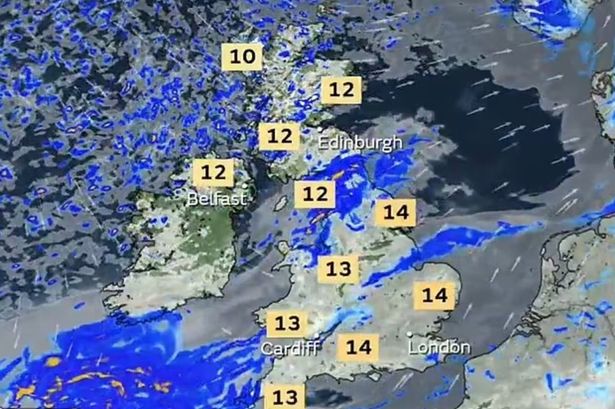The United Kingdom, renowned for its often unpredictable and frequently chilly weather, is currently experiencing a surprising and welcome period of unseasonably mild temperatures. This unexpected warmth has brought a much-needed respite from the typical winter chill, with thermometers in certain regions reaching a balmy 14°C. This surprising turn of events places parts of the UK warmer than several prominent European cities, including Barcelona and Madrid in Spain, locations typically associated with milder winter climates. This unusual weather pattern has prompted a range of responses, from delighted citizens enjoying outdoor activities to concerned discussions about the implications for the natural world and the broader context of climate change.
This shift in temperature represents a significant deviation from the expected norms for this time of year in the UK. Winter typically brings cold winds, frosty mornings, and occasionally, blankets of snow. The current mild spell, therefore, stands in stark contrast, offering a taste of spring-like conditions amidst the winter months. This unexpected warmth has been attributed to a specific combination of meteorological factors, including a southerly airflow drawing warm air from continental Europe and the influence of the Atlantic jet stream, a fast-flowing air current high in the atmosphere that plays a significant role in shaping weather patterns across the UK and beyond. The exact interplay of these atmospheric elements has created an unusual weather anomaly, resulting in the current unseasonably warm temperatures.
The implications of this mild weather are multifaceted, affecting various aspects of life in the UK. For individuals, the warmer temperatures offer an opportunity to enjoy outdoor activities typically curtailed by winter’s chill. Parks and gardens are seeing increased foot traffic, and people are taking advantage of the pleasant weather to engage in exercise, socialize, and simply enjoy the sunshine. However, this unusual warmth also raises concerns about the potential impact on the natural world. The disruption of typical seasonal patterns can affect the timing of plant growth, animal hibernation, and bird migration, potentially creating imbalances in ecosystems and posing challenges for wildlife. Furthermore, the unseasonal warmth prompts reflections on the broader issue of climate change and its potential role in influencing such unusual weather events.
The contrast between the UK’s current mild temperatures and the cooler conditions experienced in typically warmer parts of Europe, such as Barcelona and Madrid, highlights the unusual nature of this weather pattern. While the UK basks in unseasonable warmth, these Spanish cities are experiencing temperatures more typical of their winter season. This inversion of expected climatic norms serves as a striking example of the complex and sometimes unpredictable nature of weather systems, reinforcing the interconnectedness of global climate patterns and highlighting the potential for significant variations in temperature across relatively short geographical distances. The disparity in temperatures between the UK and Spain underscores the dynamic and sometimes counterintuitive behaviour of weather systems.
The current mild spell in the UK, while providing a welcome respite from the usual winter chill, also underscores the importance of understanding and addressing the complexities of climate change. While it’s tempting to simply enjoy the unexpected warmth, it’s crucial to recognize that such unusual weather patterns can have far-reaching consequences. The potential disruption of ecosystems, the impact on agriculture, and the broader implications for global climate patterns all warrant careful consideration. The current mild weather serves as a reminder of the delicate balance of natural systems and the need for ongoing efforts to mitigate the effects of climate change and promote sustainable practices.
Looking ahead, it remains to be seen how long this period of unseasonably mild weather will persist. Weather forecasts suggest that the milder temperatures may continue for a short period before more typical winter conditions return. However, the current spell of warmth serves as a reminder of the ever-changing nature of weather patterns and the ongoing need to adapt to the challenges posed by a changing climate. It highlights the importance of staying informed about weather forecasts, being prepared for potential fluctuations in temperature, and considering the long-term implications of such unusual weather events within the broader context of climate change and its potential impact on the UK and the world.














